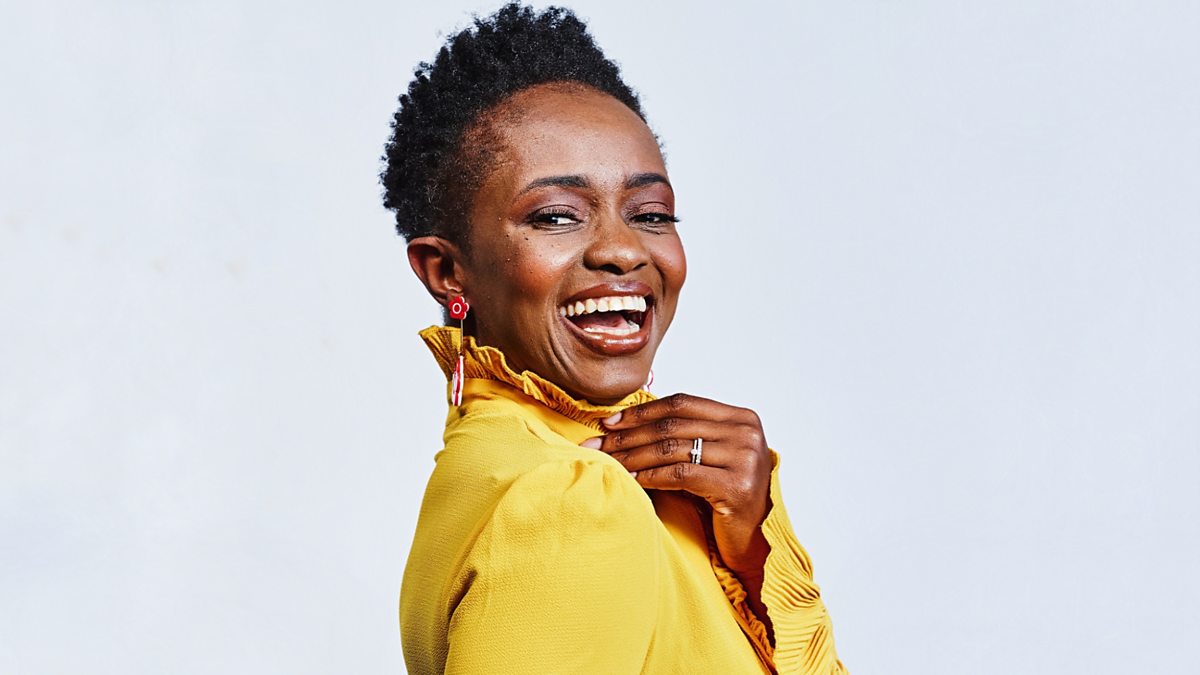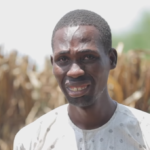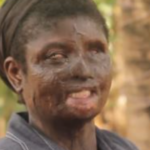From Sierra-Leone, in the capital, Freetown, picture a wealthy family with lots of half siblings…this is how Aminata Conteh-Biger grew up with her father. He would teach her about compassion.
It helped shape her life because now Aminata is a champion of maternal health in the country. But her dad’s values would be challenged nearing breaking point when she was in her teenage years.
In 1991 she was living in Freetown with her family when civil war brought fighting and brutality to the streets.
It was a conflict that would last for over a decade; tens of thousands died, children were made to fight and women and girls were kidnapped and raped. The story that Aminata tells reflects this reality of what happened. But before that let’s go to Aminata’s early ’80s.
Growing up in the ‘yellow house’ she calls it, Aminata lived with her father and her half siblings.
“I call it the yellow house because the colour is so vibrant and around our area where we grew up in Kisi in Freetown, it was quite poor. So the yellow house was this bubble to me but it was also where we could see life struggles. It made us recognise the privilege we had. Since the house was a bright yellow, we became a form of assistance to other people. That was very important to my father.
I actually thought my dad’s job was giving to people. The yellow house was the happiest place I’ve ever been in. We never wanted anything. In addition, it was how he loved us and he was extremely protective and we knew no one could touch or hurt us also. That was love.”
In 1991 the civil war started. Rebels tried to overthrow the President. The fighting initially was outside the capital till they eventually went to Freetown.
“The day they came to Freetown it was a school day and that night we had dinner with our dad. We went to bed after, and it felt as if the rebels who were once up in the clouds had just fallen down because they came out of nowhere.”
Aminata Conteh-Biger was right. The rebels had indeed come out of nowhere. They had been in the capital city all along and were actually civilians and not people in uniform.
There was a big bang and then the sight of smoke in the distance. Hundreds of people ran away from the explosion and houses started catching fire.
“My father came upstairs and asked us to be quiet. I think what he was prepared for was death; he thought we were going to die so we should be together.”
As the crowd fled, people sought refuge in Aminata’s father’s yellow house. Over 500 people stayed in the house for three weeks. Aminata’s father welcomed them with open arms.
After three weeks of the rebels’ invasion, intense firing between the rebels and ECOMOG could be heard.
“ECOMOG’s firing sounded like it was getting closer so they were pushing the rebels out. We thought the fight would pass through but then we heard a couple of voices from the rebels close by saying, ‘people are in this house’ but everybody was still quiet. They started hitting the gate. We wanted them to believe there was no one but they were still at it because the gate was locked.”
“They then shouted, ‘if you do not come out we are going to burn this house’ and then that’s when everybody started coming out. People were shot in front of us as we were all coming out. My father was panicking so he had some big guys jump us over the fence and that’s when I met Coal Boot, a rebel.
He was one of the main leaders and I remember his face because he was so dark and he had dreadlocks and you couldn’t even see the white side of his eyes. He was extremely vicious.”
“They took us to a field next to the house. They shot some people,” she added.
The rebels had come to stand in front of the children, Aminata Conteh-Biger being one of them.
“I saw one of the rebels, Daramey look at me and when he did I knew that he was coming to get me. I had heard so many stories before then, that if the parent fought they would rape the girl infront of the parent or they would ask the child to kill the parent. So when he walked towards me I just let go of my dad’s hand because I felt like I had to protect him.”
The rebels took her and they left with other children too. She had been kidnapped and they disappeared into the bush.
In the bush, warfare was still ongoing. Aminata recalls that for protection, the rebels used civilians as human shields for protection from fired bullets.
“It got to a point we slept near a dead body. There were so many casualties. I remember when the helicopters flew so low I would take a dead body and put it on top of me to protect me and pretended as if I was dead because the soldiers on the ground do not know who is a civilian and who is a rebel.”
In 1999, at the age of 18, this was Aminata’s daily life when the rebels moved through the bush from settlement to settlement in an attempt to avoid the soldiers. In places where there were no soldiers more atrocious things happened.
Daramey, the fighter who had taken her, became more and more controlling. He was obsessed with Aminata.
“It became more extreme when he had raped me and he realised that I was a virgin. So from that moment on it was after that rape that he didn’t want to touch my friends anymore, he just wanted to abuse me alone.
I did not understand what was wrong with me or what he wanted from me that he couldn’t get with other girls there. At the same time, I wanted to protect them too.”
Later, she became pregnant. “I didn’t know what was happening with my body. I wasn’t eating at all for me to be putting on weight. I was very petite as well. Then I realised from the sight of other kidnapped girls there that were pregnant, I too, was pregnant. Now, I thought, I’m bringing this child into a world with a father that is an evil person. So mentally, I was in a place where I didn’t want to live.”
Aminata Conteh-Biger attempted to poison herself. She survived but miscarried the baby and then she had to carry on. The rebels moved constantly throughout the conflict with little access to food or medicine. She was held by the rebels for several months before they made a deal with the government – a group of child prisoners to be exchanged for supplies.
“I was not meant to be in that group but one of the leaders, Coalboot, during the weeks we were camped had taken me from Daramey and said he was protecting me and his wife was called Aminata. So I felt really, in those couple of days safe with Coalboot.
He had raped me really badly the night before the deal. The next morning I heard the children were going to go that day. Something came over Coal Boot, as if he felt ashamed about what had happened. I saw it in his eyes that he felt like he had taken the trust away from me, so in his way, him letting me go, was his way of making it up to me,” Aminata Conteh-Biger recalls.
He asked her to go across to the government’s side on the other side of the street with the children. The meeting went smoothly with no fire. The news travelled quickly to Sierra Leone that some children had been released.
For an opportunity to share their experience as child prisoners under the rebels, a meeting was arranged at a radio station. The interview was televised and Aminata’s father saw her for the first time in many years.
Reunited at the home Aminata Conteh-Biger hadn’t seen since 1991, she walked up the stairs and saw her father sitting in a chair.
“He was just not the same person,” she cries. “I felt the father I knew before I left, was gone. I stayed with him for three days and for all those nights I was upstairs in the house and he was on his seat downstairs. In the middle of the night, I could hear him cry. He knew that they had taken something away from me. We didn’t talk as much. He was totally broken and I know he felt that he failed to protect me. His cheeky smile was gone, I never saw it again.”














